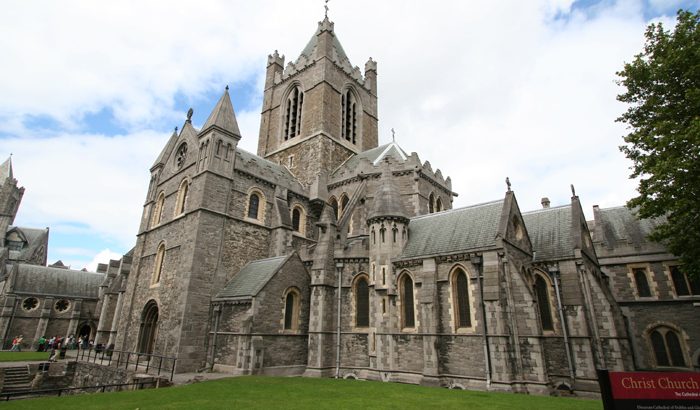Third level Catholic institutes provide an environment for the contest of ideas as well as the communication of ancient truths, writes Michael W. Higgins
This is the time of year when Catholic colleges and universities in the United States and Canada host their convocations, commencements or graduations. And they also go through the sometimes contentious and pretzel-like twists and contortions around justifying publicly and in the face of the orthodox police their reasons for electing their honorary graduates.
For several decades now the choice of honorary degree recipients and graduation speakers has been fraught with conflict whenever a choice is made that appears, on the surface at least, to defy the magisterium or Catholic sensibilities.
But the new dispensation inaugurated with the reign of Pope Francis has softened the culture war battle lines and made for a mite of peace.
Tolerance
Thomas Reese, the Jesuit Vatican watcher and commentator, has boldly argued in the National Catholic Reporter that the new mood and tolerance is best exemplified by the decision of the Vatican itself to host the Socialist and pro-choice and pro-gay marriage politician Bernie Sanders at a conference on John Paul II’s Centesimus Annus, as well as inviting the similarly liberal Vice-President of the US, Joe Biden, to address the Holy See on matters related to current and future cancer therapies and research initiatives.
Reese reasons: “If the Vatican with a clear conscience can invite these politicians to speak, why can’t Catholic colleges and universities? It is time to admit that the ban on giving platforms and honours to people who hold views contrary to Church teaching is dead. Requiescat in pace.”
Ethics professor and lawyer Cathleen Kaveny in Commonweal praised the Holy Cross president of the University of Notre Dame, the Oxford-educated philosopher John Jenkins, for bestowing this year’s Laetare Medal on both Biden and the former Speaker of the House, John Boehner, for “their exemplary service to the Catholic Church and of the broader society”.
Both men are practicing Catholics and are representative of the broad spectrum of Catholic opinion in the country: Biden is as progressive as Boehner is traditionalist, but both are men of faith and informed conscience.
What is true of graduations is also true for conferences and congresses where sometimes controversial ideas are explored in an environment that provides intellectual sanctuary in a world where the forces of political correctness, religious conformity, and ideological purity struggle to control free debate and inquiry.
Archbishop Paul-Andre Durocher, immediate past President of the Canadian Conference of Catholic Bishops and a delegate to the last Synod on the Family, included in his intervention a request that the Synod Fathers consider the re-introduction of the ancient ministry of women deacons, keeping in mind its difference in kind and degree from the presbyterate and the transitional diaconate.
It appears to have had very little traction in the aula but it has generated interest – scholarly and popular– in other circles.
For instance, the Faculty of Theology at the University of St Michael’s College in the University of Toronto, along with two of the original congregations of women who gave unstintingly to the university over the years – the Institute of the Blessed Virgin Mary and the Congregation of St Joseph – co-sponsored a study day around the issue of women deacons. They gathered an impressive list of biblical scholars, historians and theologians to help facilitate the discussion and to provide apposite information.
Pastoral dimensions
This is what Catholic universities should do: provide a context and setting for the intelligent exploration of matters of faith in our post-modern society and do it in a way that is considerate of the diverse currents of opinion in the academy, sensitive to the pastoral dimensions of the focussed inquiries, and respectful of episcopal oversight.
The local ordinary, Thomas Collins, Cardinal-Archbishop of Toronto, and ex officio Chancellor of the university, was displeased with the event and communicated his feelings to the President and his staff—they were notably absent from the proceedings.
Catholic universities are not seminaries, catechetical institutes or pastoral formation centres. They are places of learning where ideas are disseminated and dissected; they provide an environment for the contest of ideas as well as the communication of ancient truths; their job, as Pope St John Paul II has said, is “to do the thinking for the Church”.
I understand the need for pastoral solicitude and I realise how difficult it is for bishops to pastor in a fragmented, heterogeneous society, where ideas are fluid, structures in flux and people yearning for certitude. How does one balance the centripetal and centrifugal forces that define contemporary Catholicism? This is no enviable leadership challenge.
But for all its messiness, its tentativeness, its anguished questing for knowledge, a Catholic university must be free to test the boundaries, if for no other reason than to ensure its very fidelity to the tradition.



